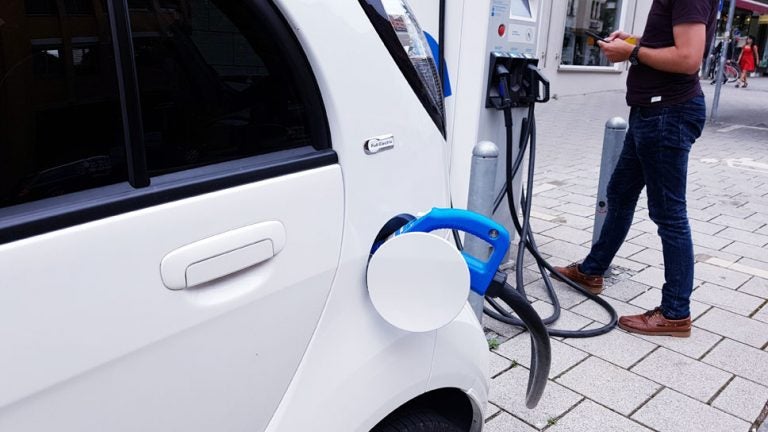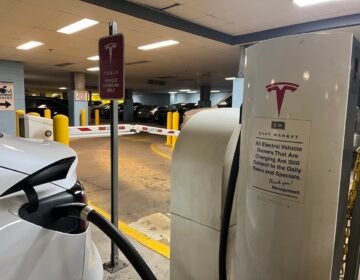Picking up the pace on electric vehicles — and charging stations — in N.J.
A new bill sets ambitious goals for multiplying public charging stations and could funnel millions in rebates to motorists.

A new bill from state Sen. Bob Smith establishes ambitious goals for multiplying public charging stations. (Pixbay/NJ Spotlight)
A new consensus bill to accelerate adoption of plug-in electric vehicles could end gridlock over how to electrify the transportation sector in the state, a step most view as critical to New Jersey achieving its goals to combat global warming.
With backing from Gov. Phil Murphy’s office, key legislators and a wide coalition of business and clean energy interests, prospects have improved for the new version of the legislation (S-2252) to win passage in the lame duck Legislature, which begins after next month’s statewide elections.
The comprehensive bill establishes lofty goals for increasing the number of public charging stations for electric vehicles in New Jersey, and proposes funneling up to $30 million in rebates to incent motorists to abandon gasoline-fueled cars for plug-in or battery electric vehicles.
With lawmakers facing an unusually heavy lame duck session, it is not at all certain whether the new consensus bill could win passage in the term, which ends in early January. If not, Sen. Bob Smith (D-Middlesex), vowed to take it up early next year. Still, Smith, the sponsor of the bill, remains optimistic.
“There is a decent chance, but I’m not guaranteeing it,’’ said the chairman of the Senate Environment and Energy Committee. “I’d give it a better than 50-50 chance we can get it done.’’
Maximum of $5,000 rebates
The legislation would put in place the kind of incentives clean car advocates say are necessary to jump-start the electrification of the transportation sector, the single largest source of greenhouse gas emissions contributing to global warming.
The bill is not substantially different from the measure that has sat in the Senate Budget and Appropriations Committee since last October. It calls for a maximum of $5,000 rebates to help consumers buy plug-in electric vehicles, which tend to be more expensive than cars relying on the combustion engine. The bill would make $30 million available a year for rebates, with two-thirds of funding coming from the state’s receipts after joining the Regional Greenhouse Gas Initiative and the rest from a New Jersey ratepayer subsidized fund.
The bill also retains targets for building the charging infrastructure to reduce range anxiety, the concern among motorists with electric vehicles that their cars will run out of power before they can find a charging station.
By January 2020, the bill sets a goal of having 600 fast-charging stations at 200 locations across New Jersey and another 1,000 slower-charging stations by the end of 2025.
With the various incentives, the bill has a target of 330,000 electric vehicles on the road by the end of 2025. By 2035, the goal would be 2 million, and five years later, 90% of all cars on the road would be electric vehicles.
Environmentalists welcomed the consensus. “What’s important about moving this bill is that it has been held up for over a year,’’ said Jeff Tittel, director of the New Jersey Sierra Club. “Time is running out. We have to move forward on electric vehicles as quickly as possible.’’
New Jersey passed a law under former Gov. Jon Corzine that established a goal of reducing greenhouse gas emissions 80% below 2006 levels by 2050. Without reducing emissions from the transportation sector, it is unlikely New Jersey will be able to achieve that goal, according to many experts.
WHYY is your source for fact-based, in-depth journalism and information. As a nonprofit organization, we rely on financial support from readers like you. Please give today.




